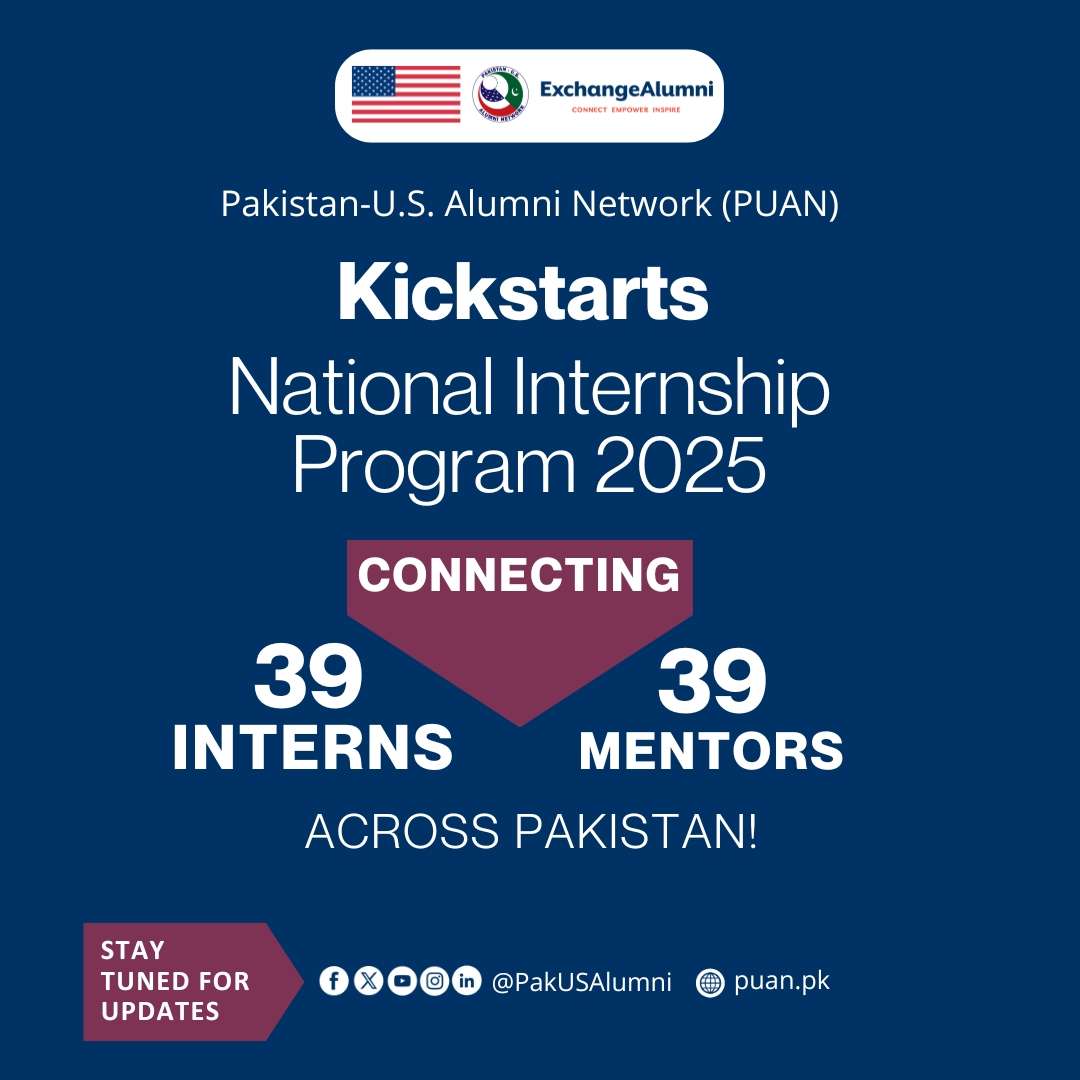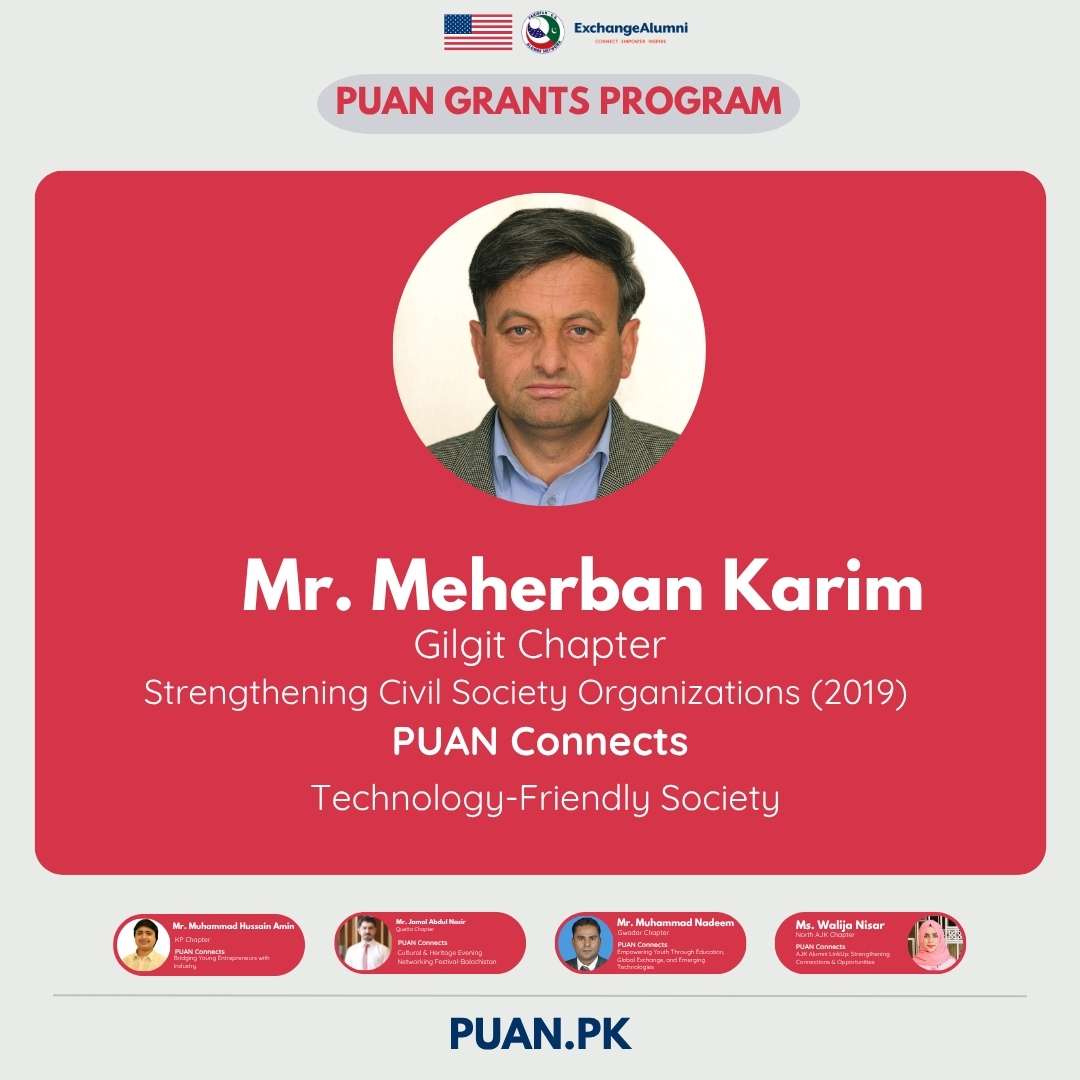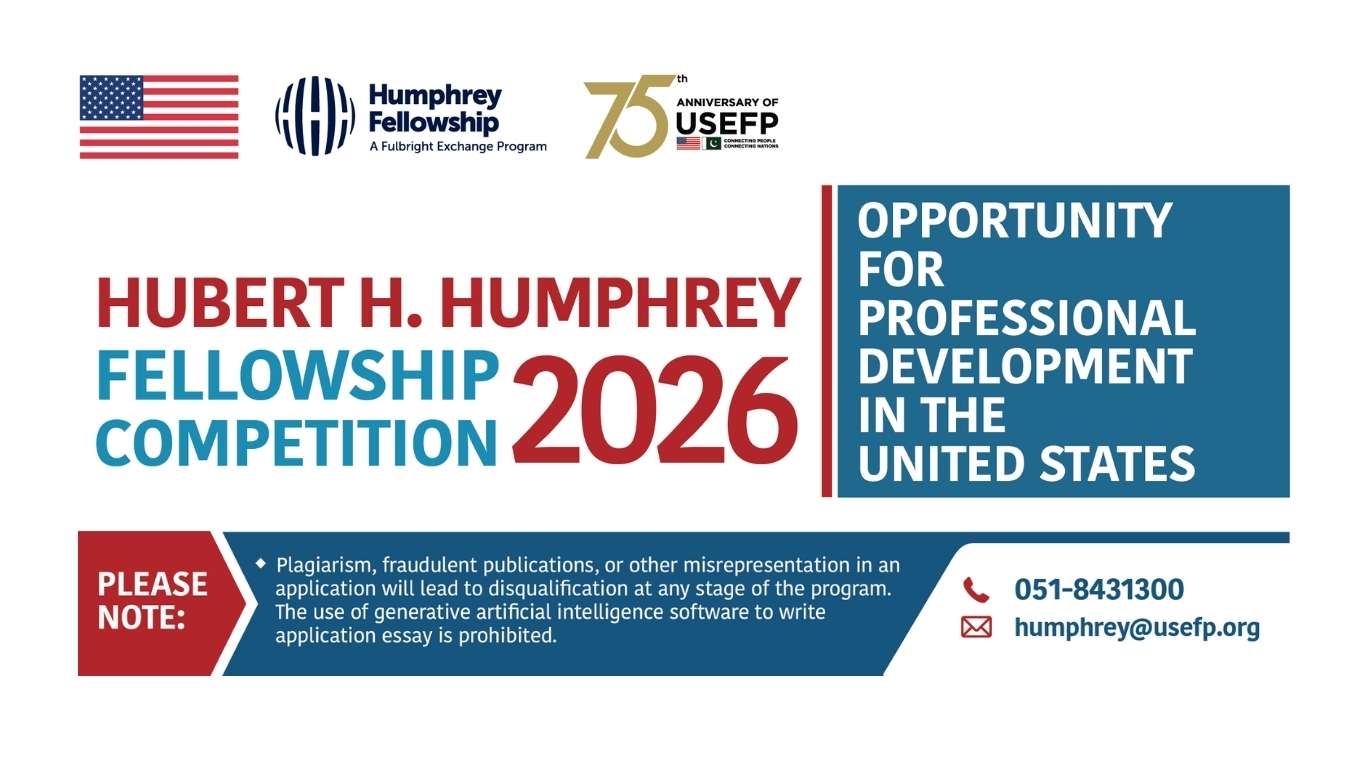By Hira Nafees Shah
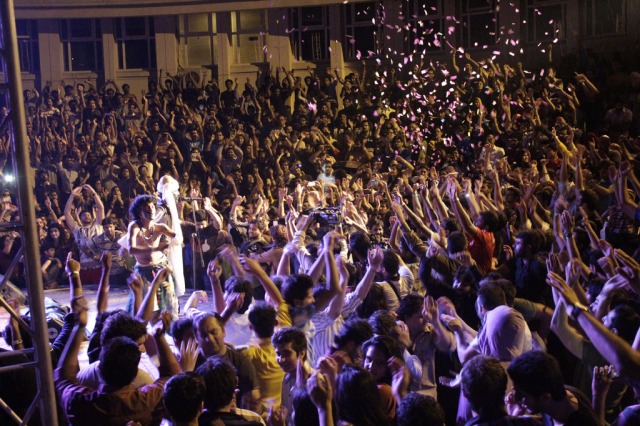
A boring and bureaucratic city no longer—that was the consensus of Islooites who attended the 2014 Music Mela Conference that rocked the city’s Red Zone at the Pakistan National Council of the Arts (PNCA) May 2-4, 2014.
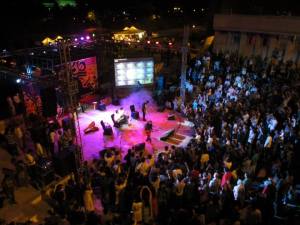
Showcasing 15 folk, fusion, rock, indie and Qawwali bands from across Pakistan, the historic three-day celebration attracted the broadest imaginable audiences—from young to old—through diverse concert performances, workshops and presentations.
“It showed that Islooites are ready to rock with the opportunity arises!” wrote one fan on Twitter.
The Pakistan-U.S Alumni Network (PUAN) and the Foundation for Arts, Culture and Education (FACE) led by renowned Pakistani musicians Arieb Azhar (2012 Center Stage alumnus) and Zeejah Fazli, International Visitor Leadership Program (IVLP) alumnus, organized the three day extravaganza that saw the PNCA jam-packed with more than a thousand people each day.
The outpouring of support from the public and the music community also highlighted the key challenges faced by musicians: the lack of live performance venues due to Pakistan’s tenuous security environment, and the lack of intellectual property rights in the entertainment sector
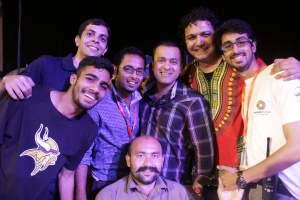
“We wanted to rejuvenate the underground music scene of Islamabad and feature live performances of all genres of music,” said Azhar, commenting on his motivation for organizing the event.
He also thanked PUAN of supporting his initiative through an Alumni Grant and connecting FACE with a bunch of alumni volunteers. All alumni of various U.S sponsored exchange programs in Pakistan can apply for the grant to enable them to give back to their communities.
“We’re delighted that an exchange program like Center Stage has inspired Arieb and Zeejah to organize this festival. Ultimately, music has the unique power to transcend boundaries and promote peace,” said Angela Aggeler, the U.S Embassy’s Counselor for Public Affairs and the chief guest on the occasion.
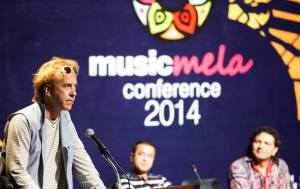
The music mela conference also prominently featured Todd Puckhaber, a music festival booker from South by Southwest (SXSW), one of the largest and most prestigious music festivals in the U.S., who traveled to Pakistan to learn about the local music. He gave a workshop for Pakistani musicians on how to market themselves to the U.S. music industry and apply to festivals like SXSW.
“Music builds bridges between cultures and that bridge has brought me to Pakistan,” said Puckhaber. “I’m convinced the U.S.—and the world—needs to experience Pakistan’s incredible musical talent.”
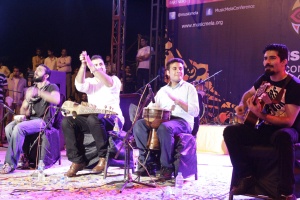
The first day of the conference featured mega performances of 2012 Center Stage alumnus Zeb Bangash from the Zeb & Haniya duo, and of Humaira Channa with the Mekaal Hassan band—one of the most critically acclaimed music groups of Pakistan.
Khumariyaan, a young instrumental band from Peshawar and 2014 Center Stage exchange participants gave such an electrifying performance, that many audience members joined them on stage and broke out in an Attan dance.
The second day commenced with a guitar workshop with music maestro Mekaal Hassan.
“I learned many new structures including music theories in the guitar workshop with Mekaal Hassan,” said Osman Ahsan, a software engineering student. “Mekaal Hassan is just legendary and it’s amazing to see him play.”
A presentation by the exceptionally talented Rohail Hayat on the genesis of Coke Studio became interactive with audience members asking a number of questions about the beginning and future of the venture.
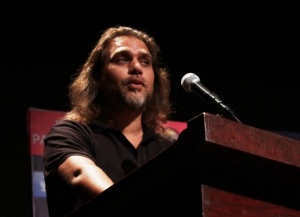
He shared his views on how fusion of Eastern and Western musical traditions made the program so successful over six seasons, as well as balancing the demands of the corporate world.
“The idea for Coke Studio started from 9/11 and it was a process of self-identity for me, of being a Pakistani and understanding what that means,” said Hayat.
Music Mela Day Two performances featured a mix of traditional and rock artists, including Bukhshi Brothers, Dr. Masuma Anwar, Malang Party, Lahore-based Poor Rich Boy (2014 Center Stage band) and rock band Qayaas. Poor Rich Boy stole the show, reported Dawn newspaper, after they turned the stage into a “surreal, almost Beckett-like experience.”
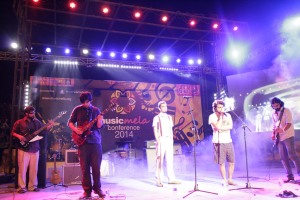
“All the performances were very good,” said Fawad Ahmed, a computer science student. “Poor Rich Boy added a new touch, I head banged on Qayaas’s performance and I still have goose bumps from listening to Dr. Masuma’s deep voice!”
But perhaps the most memorable and successful night of the whole Music Mela conference was the final one, when Sufi artists took the stage one after the other and mesmerized the audience.
The lineup kicked off with modern folk singer Natasha Humera Ejaz followed by classical Sufi fusion artist Abbas Ali Khan, who launched his new album earlier this year.
Instead of delaying the show, rain and intermittent power outages only energized the audience who were brought to their feet by the unstoppable performance of legendary Sindhi percussionist Mai Dhai from Thar Desert, followed by Balochi Pride of Performance-award winner Akhtar Chanal Zahri, who delivered classics like “Mein Nara Mastana,” to roars of appreciation from the audience. Imran Aziz Mian’s energetic Qawwali set included a song dedicated to the U.S. Embassy.
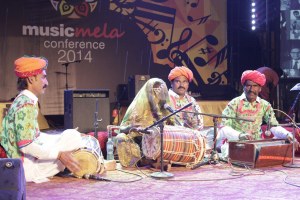
Arieb Azhar presented the show-stopper for the night, while being covered in graffiti and surrounded by a crowd of jubilant volunteers and a cheering audience.
“I have seen so many concerts but this was the first one in which the organizers had kept the audience in mind throughout, so that families also showed up on all three days,” said Umar Sultan, an MBA student. “I thought Imran Aziz Mian’s performance was the best and the Sufi night stood out amongst the other days.”
Workshops and presentations also took place earlier in the day. Audience members including children joined Alan Smith on the stage, during a percussion workshop and had a go on the drums.
“If artists don’t get royalties for their work, then there will no longer be any music,” said pop singer Haroon Rashid, during a panel discussion on Intellectual Property Rights.
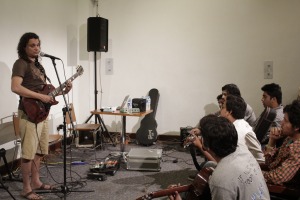
IPO lawyer and IVLP alumnus Majid Bashir and National College of Arts Rawalpindi Director Nadeem Umar also weighed in on how to enforce copyright laws in the country, so that singers get financial benefit for their work.
A useful presentation on what should be included in a music curriculum for schools and colleges featured Dr. Uxi Mufti, amongst the panelists.
“Culture is one of the lowest priorities of the government,” he said, while talking about how so many Pakistani musical legends had been forced to die in poverty, and Pakistani instruments are “going extinct” as those who know how to play them pass away.
Eventually the speakers reached the conclusion that public will was needed to reduce cultural poverty in the country, and that artists should be attached with schools and colleges, so that they could impart their knowledge to the next generation.
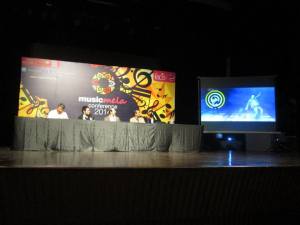
But for now, the organizers of the Music Mela Conference are happy with the positive buzz that it has created around the musical talent in Pakistan and with the phenomenal success that it has achieved.
Music Mela received extensive coverage in the media. A dozen broadcast stations, three radio outlets, and nine print publications all reported on the Mela, includingDawn, The News, and the Express Tribune. Radio Pakistan, which reaches virtually every corner of the country, also highlighted the three-day musical celebration. Fazli and Azhar appeared on the popular ATV show “Morning with Farah,” as well as the PTV talk show “Defence and Diplomacy.”
More than 2,000 tweets featuring the festival’s hasthtag #musicmela over the three-day festival amplified the Mela’s positive message of support for Pakistani musicians and the country’s rich musical heritage. Many attendees expressed hope that Music Mela would continue on an annual basis and lead the way for a revival of live performance opportunities for Pakistani musicians.
“I feel great and blessed by the success that the Music Mela Conference has received,” said organizer Zeejah Fazli. “This is not the end of the Mela, but it is just the beginning, as the conference will now be a regular feature.”
For more photos from the Music Mela Conference, check out these Flickr links:
https://www.flickr.com/photos/109908453@N05/sets/72157644477691441/
https://www.flickr.com/photos/109908453@N05/sets/72157644093170690/
https://www.flickr.com/photos/109908453@N05/sets/72157644515676782/


